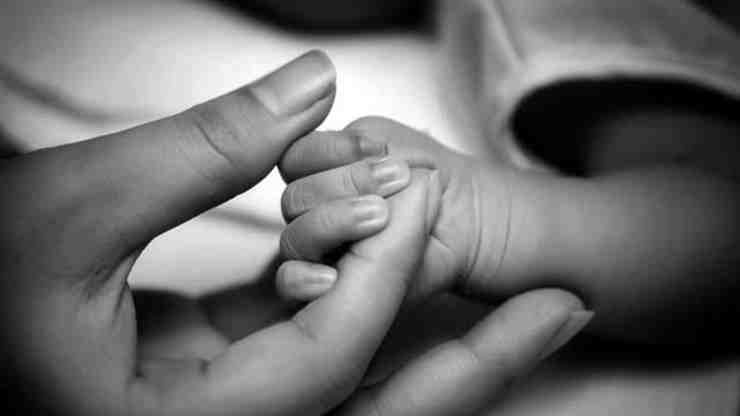SUMMARY
This is AI generated summarization, which may have errors. For context, always refer to the full article.

This is a public service announcement from DSWD:
MANILA, Philippines (UPDATED) – Ever thought of adoption?
The government is hoping more potential parents will consider the option of legally adopting children who are in the care of private and public orphanages across the country.
Marginalized
From 2006 to 2012, children were the 3rd poorest basic sector in the Philippines, next to fisherfolk and farmers, the Philippine Statistics Authority reported.
Abandonment and neglect have always topped the list of child abuse cases reported to the Department of Social Welfare and Development (DSWD).
In 2014 alone, more than 2,000 cases were handled by DSWD. The Zamboanga Peninsula reflected the most number of abandoned and neglected children, followed by the National Capital Region. Majority of these children were under 14 years old.
Some of these children are taken from the streets and placed under the care of shelters run either by government or non-governmental organizations.
Although there are child-caring institutions, having a loving family and stable home is still vital for every child, said DSWD Secretary Corazon Juliano-Soliman.
“It is important for an adopted child to feel he or she is truly loved, na anak silang totoo (that they are true children) wanted by the families who adopted them,” Soliman said during the signing of a memorandum of agreement among DSWD, the Department of Education (DepEd), the Department of the Interior and Local Government (DILG), and the Department of Health (DOH) held in February this year.
The activity is part of Philippine government’s “intensified advocacy of legal adoption.”
Adoption 101
Adoption is defined as a “socio-legal process of providing a permanent family to a child whose parents have voluntarily or involuntarily relinquished parental authority over the child,” according to DSWD.
There are 3 kinds of adoption in the Philippines:
- Agency adoptions: A licensed adoption agency identifies and develops adoptive families for children who are voluntarily or involuntarily committed. This is managed either by DSWD or licensed NGOs or child-placing agencies like the Kaisahang Buhay Foundation.
- Family or relative adoptions: The biological parents make a direct placement of the child to a relative.
- Private or independent adoptions: Can be a direct placement to a family known by the child’s biological parents or through someone who arranges family placements.
The DSWD, however, warns of “black markets” or illegal procedures wherein children are given up for adoption in exchange for cash or other means of profit.
Requirements for local and inter-country adoption also vary.
A total of 9,017 Filipino children have been matched for an inter-country adoption from 1995 to 2014, DSWD reported. 415 children were placed for inter-country adoption in 2014.
Meanwhile, 1,536 domestic adoption cases were served by DSWD in 2014.
Government partnerships
“A houseparent in a child care residential facility with 10 or more children…cannot hug all of them at the same time, only parents can do that,” Soliman added, citing a study that a person needs 20 hugs a day to make him or her feel whole and stable.
On the other hand, DepEd Secretary Armin Luistro said, “[The] choice to love an adopted child challenges all of us.”
“Informing the public about legal adoption will help clear the air about so many misconceptions and prejudices against adopted children,” he added. “A couple wanting to have a child should really go through the legal adoption process to protect the child’s best interest.”
The Education Secretary stressed that “genuine children are born from the heart and not only from the womb.”
The 4 government agencies are tasked to ensure that all schools, local government units (LGUs), and health and medical facilities are aware of the importance of legal adoption.
Schools will be required to teach adoption and other forms of alternative family care and child placement among all grade levels. Meanwhile, the DILG will supervise and guide LGUs in “ensuring that all surrendered, neglected, and abandoned children will be assessed and declared legally available for adoption by the DSWD before placement for adoption.”
DOH will then be on top of ensuring that all health and medical facilities have competent and trained professionals, while also providing services needed by children and parents at risk of abandoning and surrendering their children for adoption. It will also establish a system for reporting abandoned, abused, and neglected children among lying-in clinics or hospitals. – with reports from Fritzie Rodriguez/Rappler.com
Do you have an adoption story? Share it with MovePH. Email us: move.ph@rappler.com
For more information on adoption, you may contact DSWD’s Inter-Country Adoption Board at 725-6664. For details on domestic adoption, you can visit the DSWD website for the contact details of Field Offices nationwide.
Image of newborn baby hand from Shutterstock
Add a comment
How does this make you feel?
There are no comments yet. Add your comment to start the conversation.